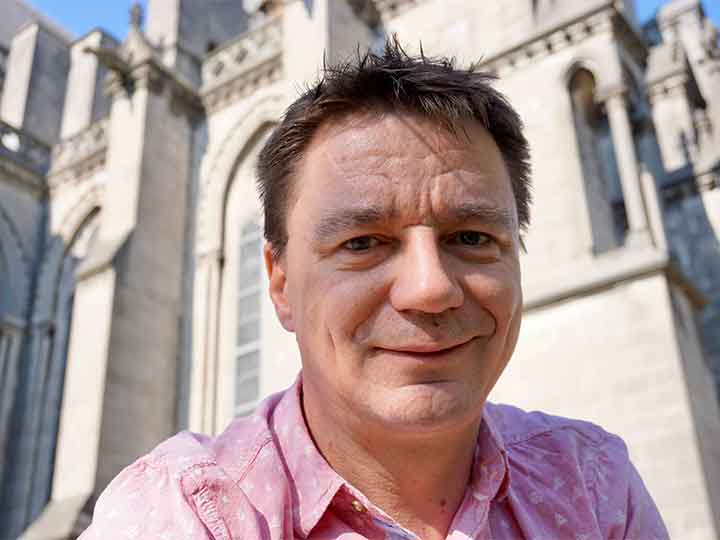Talking with Professor Lars Grabow, Ph.D.

As a result of recent occurrences, researchers continue to study and work remotely. Lars Grabow, Ph.D., Dan Luss Associate Professor of Chemical and Biomolecular Engineering and associate professor of chemistry, is one of the numerous HPE Data Science Institute users adapting to the changes that have transpired.
Grabow discusses the benefits of HPE Data Science Institute’s computer resources, and the incorporation of high-performance computing (HPC) into his research. He explains what he is working on during this quarantine and his advice to other researchers working from home.
What is the focus of your research?
LG: The research activities in my group are diverse but the common theme is to design functional materials with applications in vehicle emission control, the chemical industry, or batteries. Most of our studies pertain to heterogeneous catalysts, i.e. solid materials that speed up chemical reactions.
During this quarantine, what are you & your group currently working on?
LG: We are working on the next generation of emission control catalysts for the catalytic converter in an automobile, as well as novel processes that would enable the chemical industry to use cheap and abundant natural gases as an alternative feedstock to petroleum. Among other things, we work on safer batteries by designing solid state electrolytes that form a separation layer between the cathode and anode.
How do the HPE Data Science Institute computers enable your group to conduct thorough research?
LG: We use high-performance computing (HPC) clusters at the HPE Data Science Institute to run demanding computational models of the reactions we study. Without access to the computational facilities at the HPE Data Science Institute, this type of research would not be possible.
In your opinion, what are your favorite features of the HPE Data Science Institute and its computers?
LG: I like that they are free! Also, the computers are very fast and easy to use. Whenever we encounter a problem, the expert support staff are always eager to help. I am able to connect to HPE Data Science Institute’s computers remotely by using MobaXTerm for SSH sessions.
In response to COVID-19, were you able to successfully transition your research activity & class lectures remotely?
LG: The transition was fairly easy for my group. We can use the HPE Data Science Institute’s computing power from anywhere. I try to have multiple Zoom meetings with my team, but it’s not the same as meeting around a conference table and bouncing ideas around. I currently teach Fundamentals of Catalysis through Zoom as well. My group meetings and individual discussions with my students and postdocs are held through Slack for quick exchanges of messages.
What advice would you give to other researchers that are transitioning their research activity remotely?
LG: As a general piece of advice, I want to emphasize the importance of being in regular contact with all research group members. Every group member is unique and responds differently to the isolation. We need social interactions and research group leaders need to make an effort to maintain a sense of togetherness and keep up the team spirit. It’s difficult, but we need to try our best.